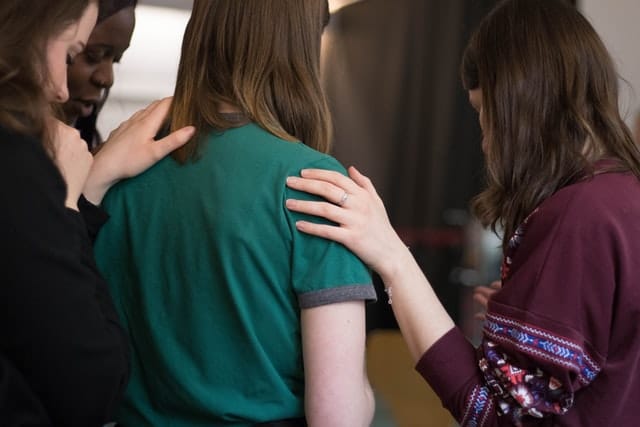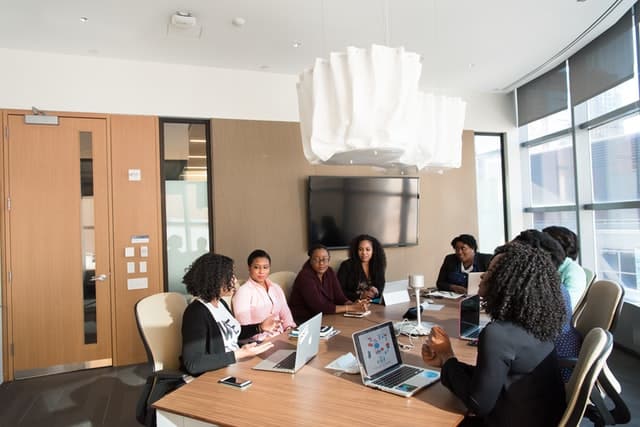Table of Contents
Mental health is important for a healthy life. There is no shame in seeking help for issues and conditions that we are struggling with. Group therapy is one of the avenues that you can explore when it comes to mental health.
In group therapy, one or more therapists deliver psychotherapy to group members who are participating in each session.

Types of group therapy
There are several types of group therapy to choose from, depending on what you prefer as well as the type of mental health issues that are present.
Psychoeducational groups
Psychoeducational group therapy aims to educate group members about their condition by providing information specific to the issue. Healthy coping strategies are taught to help group members overcome the problem they are facing.
A qualified therapist directs the session and sets goals for group members to work on. Because the therapist gives most of the instruction, the bond between group members is less important in psychoeducational groups.
Psychoeducational group therapy is great for specific conditions such as anxiety, phobias and substance use disorders.
Psychotherapy groups
Psychotherapy groups aim to deal with conscious and unconscious problems and are oriented towards solving long term issues and psychological disorders that are more serious.
Group members are encouraged to work together to form a cohesive group in which they can learn to build relationships and develop communication skills. The interaction among participants is seen as vital for change to take place.
Compared to individual therapy, psychotherapy groups offer more support, care and confrontation. These groups are effective for people who are struggling with anxiety, depressions, post-traumatic stress disorders and eating disorders.
Skills development groups
These groups focus on cultivating the skills that group members need to overcome issues such as addiction.
For example, how to refuse offers for drugs, avoid triggers, manage anger, or even, how to destress and relax.
Skills development groups allow participants to practice with each other as well as observe others using the same skills. Having a peer group also offers support to group members.
The size of skills development groups is usually limited to about 10 participants as group members need the time to practice skills that are being taught.

Cognitive behavioral groups
Cognitive behavioral group therapy deals with negative or harmful behaviors by restructuring the beliefs that have led to them. Patterns of behavior are identified and participants are taught how to control their thought processes.
Group members are also given tools and management strategies to help them cope with stressors or triggers that they will come across in real life.
For example, a cognitive behavior therapy group focusing on substance use disorder will first identify trigger situations or environments and then help participants to effectively manage the situation and thought process to prevent substance abuse.
Cognitive behavioral therapy groups are effective for drug treatment as well as other addictions.
Support groups/self-help groups
Support groups or self-help groups are made up of people who share a common condition as well as a common goal. Members of support groups receive unconditional acceptance from each other.
For example, Alcoholics Anonymous is a mutual self-help support group in which all the participants want to overcome their addiction.
In support groups, members are given the opportunity to talk about the situation they are in and the challenges that they are facing. Guidance is given via feedback from group members as they hold each other accountable.
The therapist or group leader often functions as a facilitator to guide group discussions, help participants share their experiences, provide positive reinforcement and minimize confrontation within the group.
Counseling groups
Counseling groups tend to focus on problem-solving strategies as well as interpersonal processes to help the members overcome their issues. Group members are usually able to function relatively well but are looking for personal growth.
They usually support and challenge each other while the therapist is more of a facilitator than a teacher. The therapist leads the group through a series of developmental stages and allows group members to explore and grow.
Counseling group therapy is effective for people who are coping with a divorce or going through major life changes such as retirement.
Dynamic group therapy
These are often used in programs created to overcome addictive behaviors. This group therapy focuses on participants’ deficits in character and behavior regulation.
The supportive environment of the therapy group encourages participants to examine common issues that they are struggling with. Group members establish goals and learn how to regulate their emotions and deal with their feelings to achieve abstinence.
Relapse prevention groups
Relapse prevention groups are aftercare programs that help those who struggle with addiction to stay on track once their treatment program or group therapy program comes to an end.
The first few months after recovery are crucial as many addicts are incredibly vulnerable during this time. As such, relapse prevention groups are designed to help identify environmental triggers that can potentially lead to a relapse.
Group members work to practise the coping skills that they have learnt and are able to rely on peer support to stay accountable.
Interpersonal process groups
These groups promote change and healing by recognizing conflicting forces in the mind and the way people function psychologically. Fundamental development issues, as well as environmental influences, are raised and examined.
Faulty relationship patterns are identified so that group members can change their destructive tendencies.
Participants in interpersonal process groups are taught how to relate to the people in their daily lives and build mutually satisfying relationships.
Finding a suitable group therapy
It is important to find a group that you are comfortable with. Patients tend to benefit most when there is the right mix of people. It may take some time for you to find a group that fits your needs. Meanwhile, it is a good idea to try out one or two groups before you decide on one.
Other factors to consider when looking for a therapy group include group therapy model preference, whether the group is open or closed, size of group and location of the group therapy.
Conclusion
We live in busy, stressful and uncertain times that take a toll on our mental health. Seeing a therapist or joining a therapy group should not be considered taboo. Rather, it speaks of your strength in wanting to overcome issues that you are struggling with.
Take the first step to good mental health by talking to your doctor or therapist if you’re not sure what to expect in group therapy.
The article is a part of our comprehensive series on “What is group therapy and what to expect?”
No matter what you’re facing, perhaps our website can offer up some solace or comfort. Know that you’re not alone, and that there is help available. This can be hard to keep in mind if you haven’t quite found the right support system. While it’s definitely not easy to find the right fit—whether you’re looking for a support group or a mental health provider—with diligence, it’s totally possible.
If you are a therapist, life coach or counsellor looking to join our growing community, head over to book a tour once you have learnt about the plans we offer. At A Space Between, there is a ready league of providers you can network with. With professionals from various backgrounds and therapy practices, there are bound to be the ones you can connect with. Private practice does not have to be lonely.


